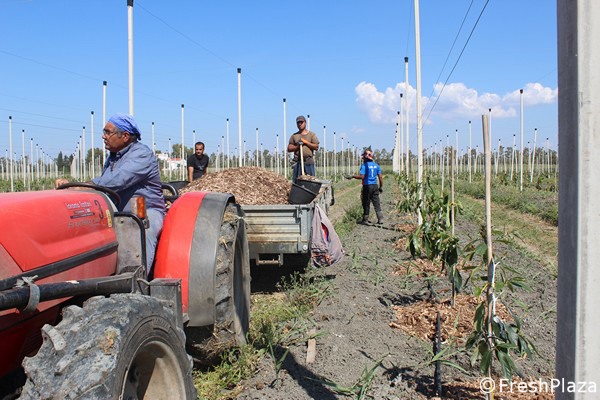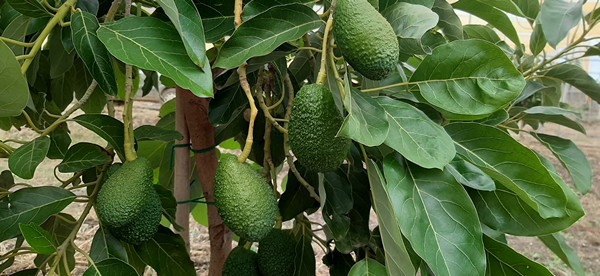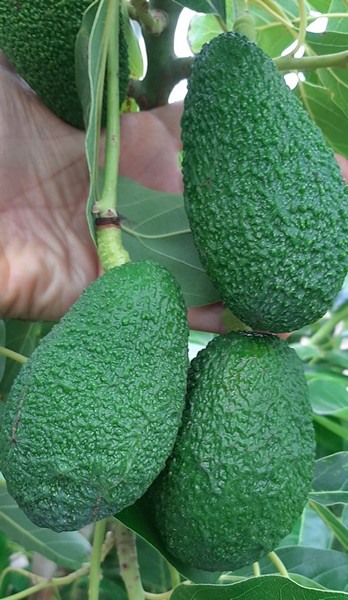In Italy, the climate is gradually becoming more tropical, with long periods of drought, mild or high temperatures throughout much of the year, and occasional extreme weather conditions such as heavy rainfall and wind gusts that can reach 100 km/h.
Climate change also seems to be bringing with it an evolution of cultivation, with crops typically grown in South America or Asia. In recent years, interest in exotic fruits in Italy has increased significantly, especially avocado, mango, papaya, goji berries and lime. This primarily concerns the southern regions of Sicily, Apulia, Calabria and Basilicata.
 Avocado planting in Castellaneta (Tarento). Company: Masseria Fruttirossi
Avocado planting in Castellaneta (Tarento). Company: Masseria Fruttirossi
To get a better idea of this new trend, we spoke with Giovanni Manca, a cultivation technician specializing in tropical crops. "In Apulia, for example, exotic cultivation is a fast-growing activity, with a total of about already 500 hectares of exotic fruits. Only a fraction of this acreage has already gone into production, because priority is given to calm growth to get strong plants. We are talking about the region around Taranto and all the Salento area, where the climatic conditions seem ideal for growing these crops. Demand for exotic fruits is increasing throughout the country, especially for avocados, and consumers seem inclined to spend more money for a national product."
 Avocado plants in third year after planting
Avocado plants in third year after planting
"Although they are non-native species, they adapt very well to southern areas. Nevertheless, they are crops that are very sensitive to low temperatures. Therefore, for a good result, it is necessary to take some precautions and protection measures, such as investing in anti-frost tools and canopies. Proper attention in the pre- and post-transplant phase is also required."

"Although they are non-native species, they adapt very well to southern areas. Nevertheless, they are crops that are very sensitive to low temperatures. Therefore, for a good result, it is necessary to take some precautions and protective measures, such as investing in anti-frost tools and canopies. Proper attention in the pre- and post-transplant phase is also required."
"I always recommend growers, when deciding on a crop or variety, to carry out a preliminary feasibility study in terms of soil and climatic conditions. For avocado, for example, which has a bunched root system, soils with less than 30% clay are preferred, to avoid problems of root asphyxiation. Furthermore, it is important to take into account the relative humidity of the site being cultivated and to establish growing beds, as they offer the advantage of better drainage of excess water, among other things."
carry out a preliminary feasibility study in terms of soil and climatic conditions. For avocado, for example, which has a bunched root system, soils with less than 30% clay are preferred, to avoid problems of root asphyxiation. Furthermore, it is important to take into account the relative humidity of the site being cultivated and to establish growing beds, as they offer the advantage of better drainage of excess water, among other things."
"The exponential increase in new plantings in recent years is not only due to climatic conditions, but also to various organizational issues because of cost increases. After all, these are crops that require a lot less manpower compared to other traditional leafy fruit trees and require less fertilization and application of plant protection products. Compared to other crops, exotic fruits also guarantee a certain (and greater) profitability, at least if the cultivation is handled professionally."
